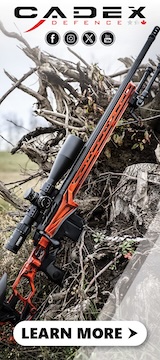As someone who has started to look into domestic guided hunts I'm getting a bit of sticker shock seeing these prices (www.bookyourhunt.com).
I went into this thinking $10,000 would be a healthy budget to hunt any single big game species our country has to offer....apparently not.
As comparison $10,000 CDN will buy you a 10 day plains game hunt where you can take multiple species/trophies. $10,000 will also buy you a dangerous game hunt like Cape Buffalo with room to spare for another plains game or two. You can hunt brown bear in Europe for less than $5,000.
Looking at some of our domestic hunt prices I'm seeing:
1. Bison (AB) - $21,000
2. Caribou Hunts (Yukon) - $28,000-48,000.
3. Muskox Hunts (NWT) - $30,500.
4. Mountain Goat (BC) - $30,000-50,000
5. Big Horn Sheep (BC) - $55,000-110,000
Elk and Moose seem to be the most affordable of the big game hunts coming in $6,000-13,000.
I've even seen some black bear and white tail hunts in the $20,000 range.
So what gives? is it the cost of labour here compared to places like South Africa and parts of Europe? Is it the degree of remoteness in terms of getting access to these animals (fly in, fuel, horseback etc).
I can confidently say I don't foresee a bighorn sheep hunt in my immediate future.
I went into this thinking $10,000 would be a healthy budget to hunt any single big game species our country has to offer....apparently not.
As comparison $10,000 CDN will buy you a 10 day plains game hunt where you can take multiple species/trophies. $10,000 will also buy you a dangerous game hunt like Cape Buffalo with room to spare for another plains game or two. You can hunt brown bear in Europe for less than $5,000.
Looking at some of our domestic hunt prices I'm seeing:
1. Bison (AB) - $21,000
2. Caribou Hunts (Yukon) - $28,000-48,000.
3. Muskox Hunts (NWT) - $30,500.
4. Mountain Goat (BC) - $30,000-50,000
5. Big Horn Sheep (BC) - $55,000-110,000
Elk and Moose seem to be the most affordable of the big game hunts coming in $6,000-13,000.
I've even seen some black bear and white tail hunts in the $20,000 range.
So what gives? is it the cost of labour here compared to places like South Africa and parts of Europe? Is it the degree of remoteness in terms of getting access to these animals (fly in, fuel, horseback etc).
I can confidently say I don't foresee a bighorn sheep hunt in my immediate future.
Last edited:




































































